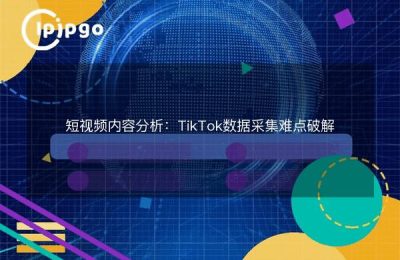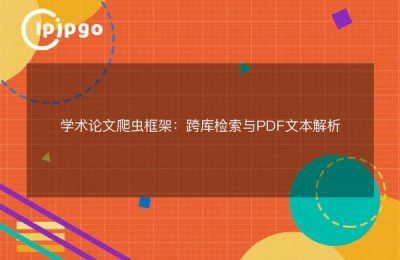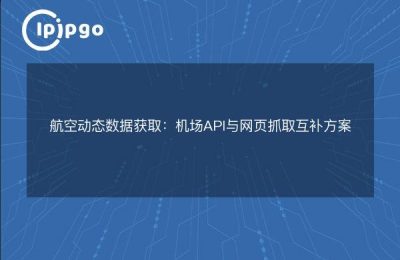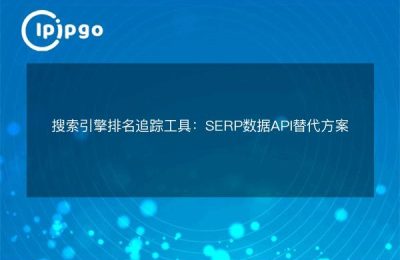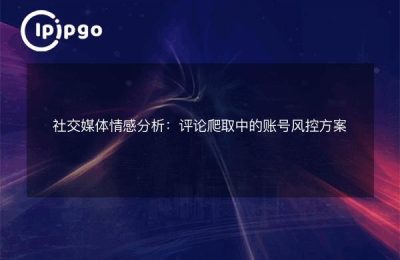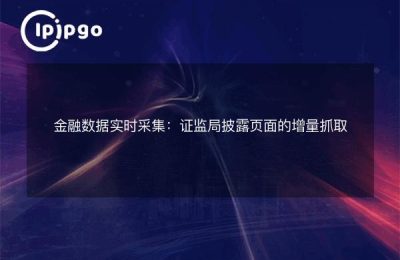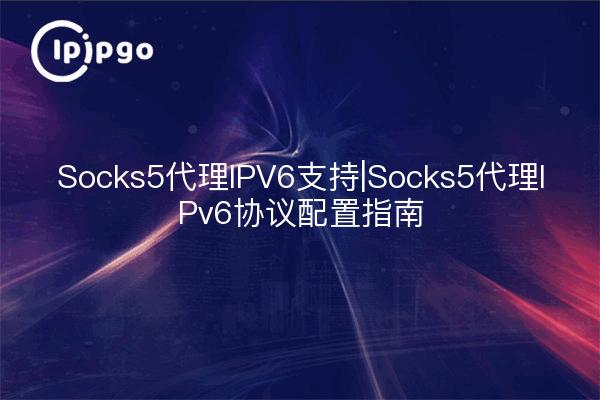
I. What is the relationship between Socks5 proxy and IPv6?
Many users may have encountered the situation that IPv4 addresses are not enough when using proxy services.IPv6, as a new generation of Internet protocol, has nearly unlimited address resources. When your local network supports IPv6, connecting to IPv6 addresses through Socks5 proxy can accomplish specific network operations more stably.
ipipgo's Socks5 proxy service naturally supports the IPv6 protocol, which means you don't need to configure additional protocol conversion tools. More than 35% nodes in its residential IP pool have deployed IPv6 addresses, and users can choose between pure IPv4, IPv6, or dual-stack proxy modes based on their business needs.
Second, how to determine whether an IPv6 proxy is needed?
It is recommended that you use an IPv6 proxy when you encounter the following three situations:
1. Enforcement of IPv6 access to target websites
Some domestic websites have gradually closed their IPv4 entrances, allowing only IPv6 addresses to access them.
2. IPv6 limitations exist in the local network environment
Some network operators have special controls on IPv6 traffic, which can be circumvented through proxies.
3. Scenarios requiring greater anonymity
IPv6 Address Allocation Mechanisms Are More Complex, Enhancing Privacy with Residential Proxies
Third, ipipgo's Socks5 Proxy IPv6 Configuration Tutorial
Taking Windows as an example, the configuration takes only three steps:
Step 1: Getting Agent Information
Log in to the ipipgo console and check the box when creating a Socks5 proxy session"Enabling the IPv6 protocol."Options. The system automatically assigns IPv6-enabled nodes, recording the proxy IP, port, and account information.
Step 2: Setting up a local proxy
1. Open System Settings → Network and Internet → Proxies. 2. Fill in the "Manually set proxy" field with proxy information. 3. Check "Do not use proxy for local addresses".
Step 3: Verify connectivity
Visit the ipipgo offeringsIPv6 Detection Page, confirm that the exit address displayed on the page is in IPv6 format (e.g., 240e:xxxx:xxxx::xxxx).
IV. Guidelines for solving common problems
Q1: IPv4 address is still displayed after connection?
A:Check whether the proxy client opens the protocol priority setting, it is recommended to check in the background of ipipgo"Forced IPv6 Mode"
Q2: Is IPv6 proxy slower than IPv4?
A: This may be caused by imperfect support for IPv6 on the local network. ipipgo offersIntelligent Route Optimizationfunction, the optimal node can be selected automatically.
Q3: The program can't recognize the IPv6 proxy?
A: Make sure that the software version used supports the Socks5 protocol, and some of the older tools need to be updated to the latest version.
V. Why choose ipipgo's IPv6 proxy?
ipipgo has three core advantages over other service providers in the IPv6 proxy space:
1. True Residential IP Resources
All IPv6 addresses are from real home broadband, avoiding the risk of data center IP blocking
2. Protocol integrity support
Supports Socks5 over TCP/UDP, HTTP/S and other full stacks, adapting to a variety of application scenarios
3. Dynamic session management
Multiple IPv6 egresses can be automatically switched for a single session to meet the demand for stable connections over a long period of time.
Through the configuration method in this article, together with ipipgo's Socks5 proxy service, users can easily cope with various needs in IPv6 network environment. It is recommended that new users first verify the proxy effect through the free test, and then choose the appropriate proxy mode according to the actual business volume.

